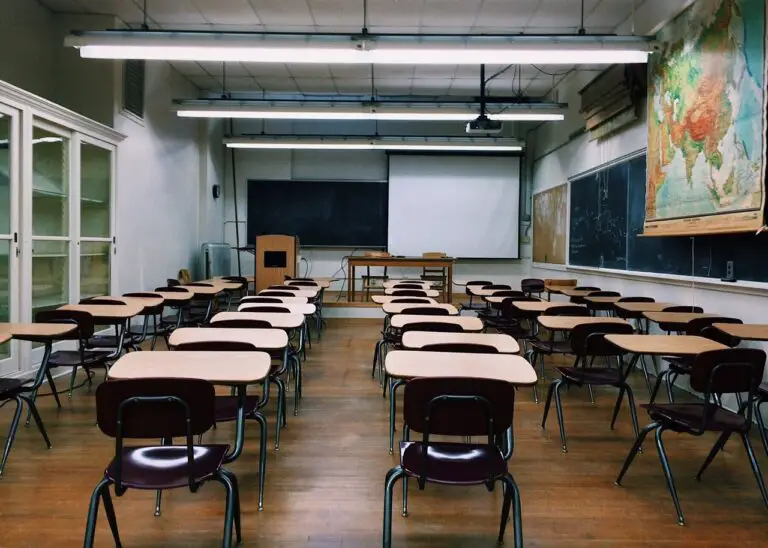Why Don’t Schools Teach About Money? Exploring the Lack of Financial Education in Education Systems
Ever wondered why we didn’t learn about money in school? Despite its real-world importance, many schools skip it. Dive in to find out why it’s high time we change that! Let’s make money talk a classroom norm.
Why Schools Don’t Teach About Money
Despite the importance of financial literacy in today’s society, many schools still need to include it in their curriculum. There are several reasons why schools don’t teach about money, including the following:
Lack of Time in the Curriculum
Schools need more time to cover all the necessary subjects in their curriculum. As a result, some subjects, such as financial literacy, may be excluded. Teachers may also need more time to teach financial literacy effectively.
Lack of Qualified Teachers
Not all teachers have the necessary training or experience to teach financial literacy. Many teachers may feel uncomfortable teaching about money, or they may need to have the required knowledge themselves.
Emphasis on Standardized Testing
Many schools are focused on preparing students for standardized tests, which may include something other than financial literacy. As a result, schools may not prioritize teaching about money.
Belief That It’s the Parents’ Responsibility
Some people believe that teaching children about money is the responsibility of parents, not schools. While parents should play a role in teaching financial literacy, schools can also play an essential role in ensuring all students have access to this vital knowledge.
The Importance of Financial Literacy
Financial literacy is a crucial skill often overlooked in schools. It’s about understanding and managing money. With it, many young individuals can avoid debt, bad credit, and sufficient savings.
Financial education is crucial as it equips people with the know-how to manage money wisely. This covers budgeting, saving, investing, handling debt, and understanding financial products like credit cards and loans.
With financial literacy, individuals may make better financial decisions that can have long-lasting consequences. For example, they may take on too much debt, fail to save for emergencies or retirement or fall victim to financial scams.
Financial literacy benefits not only individuals but also the broader economy. When people lack this knowledge, it can destabilize the economy. However, financially informed people tend to save and invest, promoting economic growth and stability.
The Current State of Financial Education in Schools
Financial education in schools has been a topic of discussion for many years. While some schools have implemented financial literacy education into their curriculum, it is optional in most high schools.
🌟 Hey Students! 🚀 Ready for the ultimate experience? Join us on Studentsinside.com's Facebook, YouTube, WhatsApp, and LinkedIn. Click now for tips, fun, and success vibes! 🌈✨ #StudentLife #JoinUs
Only 21 states require high school students to take personal finance courses, according to a National Endowment for Financial Education survey. As a result, many students need formal financial training.
Even in states where financial education is required, the quality of the teaching can vary greatly. Some schools may only offer a single class on financial literacy, while others may have a more comprehensive curriculum.
One of the main reasons financial education is yet to be a requirement in all schools is the need for trained teachers. Many teachers need more knowledge and resources to teach financial literacy effectively. Additionally, teachers may need more time or resources to develop a financial literacy curriculum independently.
Despite the challenges, there is a growing movement to make financial education a requirement in all schools. Many organizations and individuals are advocating for financial literacy education to be included in the standard curriculum.
Some states have already taken steps to require financial education, and more may follow suit in the coming years.
The Impact of Lack of Financial Education
The lack of financial education in schools has a significant impact on individuals and society as a whole.
One of the most significant impacts of the lack of financial education is the rise in student loan debt. Many students graduate from college with substantial debt, which can take years to pay off.
Additionally, financial education can lead to better financial decisions, such as taking out payday loans or using credit cards irresponsibly. These decisions can result in a cycle of debt and financial stress, making it difficult for individuals to break free from living paycheck to paycheck.
Lack of financial education can harm one’s credit score. Late payments and high card balances can make getting future loans or credit challenging.
The Role of Parents in Financial Education
Parents are essential in teaching kids about money. While schools offer basic financial education, parents are the main teachers of financial skills.
Based on a U.S. Bank survey, only 41% of parents are confident in teaching their kids about money. Yet, informed parents can greatly influence their children’s financial success.
One of the most important roles that parents can play in financial education is teaching their children about budgeting. Parents can help their children create a household budget, teaching them the importance of tracking income and expenses, setting financial goals, and living within their means.
Parents can help children develop good money management habits early on by involving them in budgeting.
Parents can also teach their children about saving and spending. By encouraging their children to keep a portion of their allowance or earnings, parents can help them develop a savings habit that can last a lifetime.
Parents can guide their children on smart spending by setting limits and promoting wise choices.
In addition to teaching their children about personal finance, parents can also model good financial behavior.
Financial Literacy for College Students
Financial literacy is crucial for college students. It guides them in making smart choices about loans, credit, savings, and investments. Sadly, many graduate without this vital knowledge.
One critical aspect of financial literacy for college students is understanding student loan debt. Students need to know how much they are borrowing, the interest rates on their loans, and how long it will take to pay them off.
Be sure to understand the various repayment options and the repercussions of not paying back loans.
Credit is another area where financial literacy is essential. College students need to understand how credit works, including the different types of credit, and establish and maintain a good credit score. They should also know how to avoid common credit mistakes, such as maxing out credit cards or missing payments.
Saving and investing are also crucial components of financial literacy for college students. Students should learn to create a budget, stick to it, and save money for emergencies and future goals. They should also understand the basics of investing, including stocks, bonds, and mutual funds.
Teaching Personal Finance in a Pandemic
The COVID-19 pandemic has brought many educational challenges, including teaching personal finance. While financial literacy has always been an important subject, the pandemic has highlighted its need even more.
With the economic impact of the pandemic, many people are facing financial hardship and struggling to make ends meet. Therefore, teaching personal finance during the pandemic is more crucial than ever.
Teaching personal finance remotely during the pandemic has been challenging. Teachers have had to innovate to engage students and offer practical learning experiences.
This has led to the developing of new digital resources and tools, such as online budgeting calculators and virtual stock market simulations, that can teach personal finance remotely.
Another important aspect of teaching personal finance during the pandemic is addressing the mental health impact of financial decisions. With the uncertainty of the pandemic, many people are experiencing anxiety and stress related to their finances.
Educators should teach financial literacy and support students facing mental health challenges due to financial concerns.
Teaching personal finance during the pandemic can also help students develop good spending and saving habits. With the economic impact of the pandemic, many people have had to adjust their spending and saving habits.
Incorporating Financial Literacy into the Curriculum
Financial literacy is an essential life skill often overlooked in school curriculums. However, with the right approach, it can be incorporated into the curriculum in an engaging, informative, and effective way.
One way to incorporate financial literacy into the curriculum is by integrating financial concepts into existing subjects. For example, math classes can teach students about budgeting, interest rates, and compound interest.
Social studies classes can cover taxes, government spending, and the economy. English classes can focus on financial literacy through reading and analyzing financial literature.
Another approach is to offer standalone financial literacy courses. These courses can cover various topics, including budgeting, saving, investing, and credit management. They can also teach students practical skills like balancing checkbooks or filing taxes.
Incorporating financial literacy into the curriculum requires effective project management and teacher training.
Teachers should have the knowledge and resources necessary to teach financial concepts effectively. They should also be trained to engage students and make the material relevant to their lives.
The Future of Financial Education
Financial education in schools is vital. Students must learn to make smart financial choices as student debt grows and financial landscapes change.
Fortunately, there are signs that financial literacy education is becoming more of a priority in schools.
Many states now require financial education as part of their curriculum, and some schools are even offering courses in investing and retirement savings.
Students must grasp 401(k) plans, essential long-term wealth-building tools. Schools teaching about 401(k)s and other retirement options equip students for a stable financial future.
Additionally, understanding cryptocurrency, a newer and fluctuating investment, is becoming increasingly important for students.








